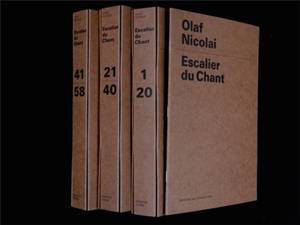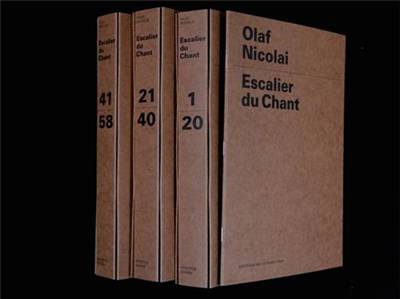
Bedankt voor het vertrouwen het afgelopen jaar! Om jou te bedanken bieden we GRATIS verzending (in België) aan op alles gedurende de hele maand januari.
- Afhalen na 1 uur in een winkel met voorraad
- In januari gratis thuislevering in België
- Ruim aanbod met 7 miljoen producten
Bedankt voor het vertrouwen het afgelopen jaar! Om jou te bedanken bieden we GRATIS verzending (in België) aan op alles gedurende de hele maand januari.
- Afhalen na 1 uur in een winkel met voorraad
- In januari gratis thuislevering in België
- Ruim aanbod met 7 miljoen producten
Zoeken
Omschrijving
How can songs reflect political events? How does a song become a political song? The artist Olaf Nicolai invited eleven international composers to write songs that reference political events which were of current relevance to them. Without prior announcement, a total of 58 songs were performed as a-cappella pieces on twelve Sundays in 2011 on the central staircase of the Pinakothek der Moderne in Munich. Visitors to the museum found themselves as actors in a staged performance for brief instances of time. The publication Escalier du Chant presents excerpts from the songs and commentaries by the composers in the form of 58 music sheets; the accompanying booklet contains various photographs of the performances. Includes songs by Tony Conrad, Georg Friedrich Haas, Georg Katzer, Liza Lim, Samir Odeh-Tamimi, Enno Poppe with Marcel Beyer, Rolf Riehm, James Saunders, Elliott Sharp, Mika Vainio, Jennifer Walshe.
Specificaties
Betrokkenen
- Auteur(s):
- Uitgeverij:
Inhoud
- Aantal bladzijden:
- 206
- Taal:
- Engels
Eigenschappen
- Productcode (EAN):
- 9783940064653
- Verschijningsdatum:
- 1/01/2012
- Uitvoering:
- Paperback
- Formaat:
- Trade paperback (VS)
- Afmetingen:
- 180 mm x 251 mm
- Gewicht:
- 2154 g

Alleen bij Standaard Boekhandel
+ 277 punten op je klantenkaart van Standaard Boekhandel
Beoordelingen
We publiceren alleen reviews die voldoen aan de voorwaarden voor reviews. Bekijk onze voorwaarden voor reviews.









